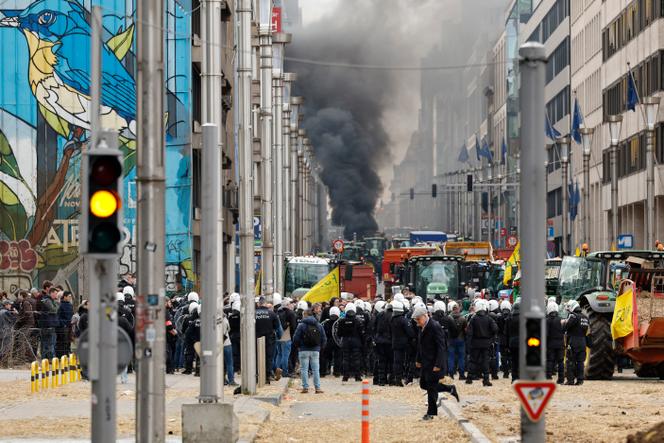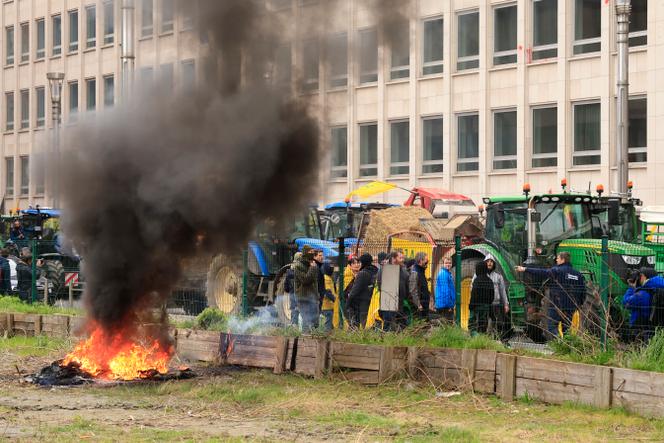


EU member states on Tuesday, March 26, agreed to unpick the more environmentally friendly requirements of the bloc's common agricultural policy (CAP) in a new bid to pacify months-long protests by farmers – who faced off with riot police in Brussels for the third time in two months.
Police said they used tear gas and water cannons against farmers who targeted them with eggs and Molotov cocktails, with two officers injured in the standoff and one arrest. Farmers have been mounting rolling protests in countries across the EU, from Belgium to France, Spain, Italy and Poland, over a long list of burdens they say are depressing revenue.
The CAP review was approved by a special committee, as agriculture ministers met under tight security in the city's European district; which farmers thronged with 250 tractors, setting fire to tyres and bales of hay. "We have listened to our farmers and we have taken swift action to address their concerns at a time when they are confronted with numerous challenges," said David Clarinval, deputy prime minister of Belgium, which holds the rotating EU presidency.
He said the revision sought to slash red tape and give farmers more flexibility in complying with green regulations while "maintaining a high level of environmental ambition" – a claim that has been rejected by environmental groups who see it as a big step backwards.

This latest move in a string of concessions on agriculture comes less than three months before bloc-wide elections for the European Parliament. Surveys have predicted that the vote will result in a surge of support for far-right parties that are using farmers' discontent as part of their campaigning. The proposal now goes before EU lawmakers for approval.
The CAP review, first proposed by the European Commission in mid-March, changes a set of environmental and climate standards that determine whether farmers can receive subsidies under the policy. A key change involves granting leeway to farmers who fail to meet CAP requirements because of extreme weather.
The revision also does away entirely with the obligation to leave a share of arable land fallow – a measure aimed at protecting soils and promoting biodiversity but a major gripe for farmers. Yet they would still be incentivised to do so. Member states would have more flexibility to decide which soils to protect and in which season, and would be allowed to diversify crops as well as to rotate them. Additionally, the revision exempts small farms under 10 hectares (25 acres) from inspections and penalties related to CAP compliance.

France's Agriculture Minister Marc Fesneau welcomed it as a step "in the right direction."
The powerful European farmers association Copa-Cogeca said its adoption by member states sent a "positive signal," and called on EU lawmakers to follow suit.
Yet a coalition of 16 environmental groups including WWF and Greenpeace declared themselves to be "extremely concerned," saying the proposal was made without proper impact assessment and urging the Commission to reverse course.
The review was approved with backing from a qualified majority of EU states – overriding opposition from Germany in particular. Though a frequent critic of red tape under existing CAP rules, Germany's Agriculture Minister Cem Ozdemir said the changes signalled a step backwards – to the time before the EU made defending the environment a priority. "We won't obtain better results by using old recipes," Ozdemir warned. "This was a policy that considerably harmed the little guys, and that just made the big guys bigger."
